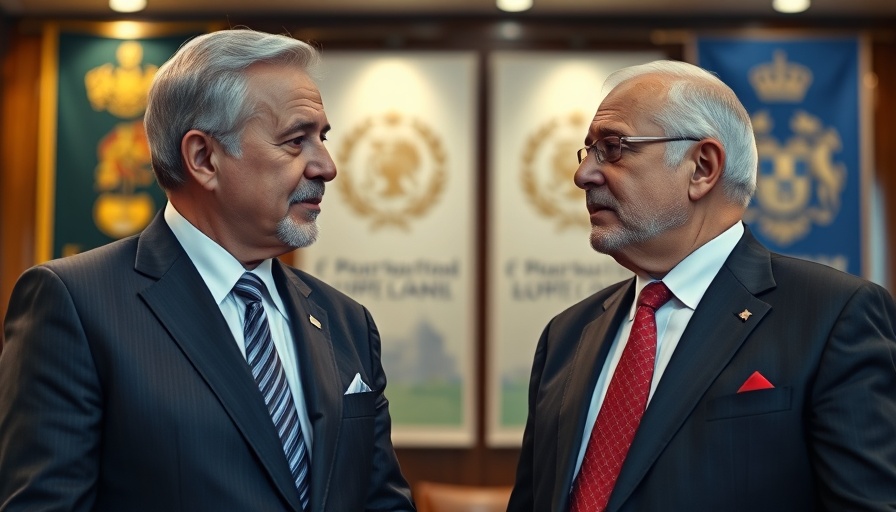
Concerns Mount Over Intelligence Sharing Between Allies
In a significant geopolitical shift, tensions are rising among U.S. allies regarding intelligence sharing, particularly between Israel and the United States. Recent discussions suggest that key allies, like Israel and Saudi Arabia, are contemplating limiting their intelligence sharing with Washington. This consideration stems from apprehensions about the Trump administration's warming relations with Russia, which may jeopardize the security of foreign assets vital to these nations.
Understanding the Risks Behind Intelligence Sharing
Intelligence agencies, such as those within the Five Eyes alliance (comprising the U.K., Canada, Australia, and New Zealand), regard protecting foreign agents' identities as sacrosanct. Any potential breach could lead to losing trust and crucial collaborations. Following claims of potential risk to overseas spies and agents, multiple sources indicate that countries are assessing how best to protect their assets while navigating the complexities of their relationships with both the U.S. and Russia.
Israel's Unique Position in the Geopolitical Landscape
Israel's Prime Minister has publicly dismissed the notion that Israel would consider scaling back intelligence cooperation with the United States, citing strong historical ties and mutual benefits. The ongoing war in Gaza, marked by active military engagements, may further complicate Israeli strategies regarding intelligence sharing. As global Christians who support both Israel and humanitarian efforts, it's vital to consider how intelligence dynamics may affect stability and security in the region.
Potential Implications for Israeli Citizens
As talks unfold, it’s crucial for those who care about Israel's security to remain informed. A shift in intelligence cooperation could affect the safety of Israeli civilians, particularly in conflict zones where accurate intelligence is essential to military success and civilian safety. For the global Christian community and other supporters, understanding the broader implications of this discourse can provide deeper insights into the challenges Israel may face going forward.
The Future of Intelligence Cooperation
While no immediate decisions have been made regarding intelligence sharing protocols, the ongoing dialogue among allies reflects the uncertainty within the global political landscape. Allies are now weighing the importance of maintaining open lines of communication against the backdrop of a changing U.S. foreign policy concerning Russia. As advocates for interfaith dialogue and humanitarian efforts, it is essential to promote awareness among global Christian communities on how such international relations impact both national security and humanitarian missions in the region.
To stay informed on these complex issues, consider deepening your understanding of both the geopolitical landscape and the significant role that intelligence cooperation plays in securing peace and stability in areas affected by conflict.
 Add Row
Add Row  Add
Add 








Write A Comment